Restricted access builds appetites. It’s definitely true for the green-wrappered, $1.50 pimento cheese sandwiches patrons purchase by the handful at the Masters golf tournament in Augusta, Georgia.
The short period in April surrounding the Masters and this year’s inaugural Augusta National Women’s Amateur tournament is the only time non-members can experience one of the world’s most exclusive clubs and its longstanding traditions – simple, classic sandwiches among them.
Augusta National Golf Club’s perfectly manicured electric-green, azalea-bordered hills have drawn millions of visitors to this Southern city since the club launched the tournament that became the Masters in 1934.
And with good reason: Augusta National is steeped in tradition, and its long, storied, secretive, sometimes controversial past has piqued the interest of golf enthusiasts and the enthusiastically curious alike.
Yet for all its associations with golf, the city of Augusta has other claims to fame and is adding to and enhancing the types of attractions and amenities that keep visitors entertained off the course.
Located two hours east of Atlanta along the South Carolina border, Augusta is worth a leisurely look at tournament time and beyond.
The club
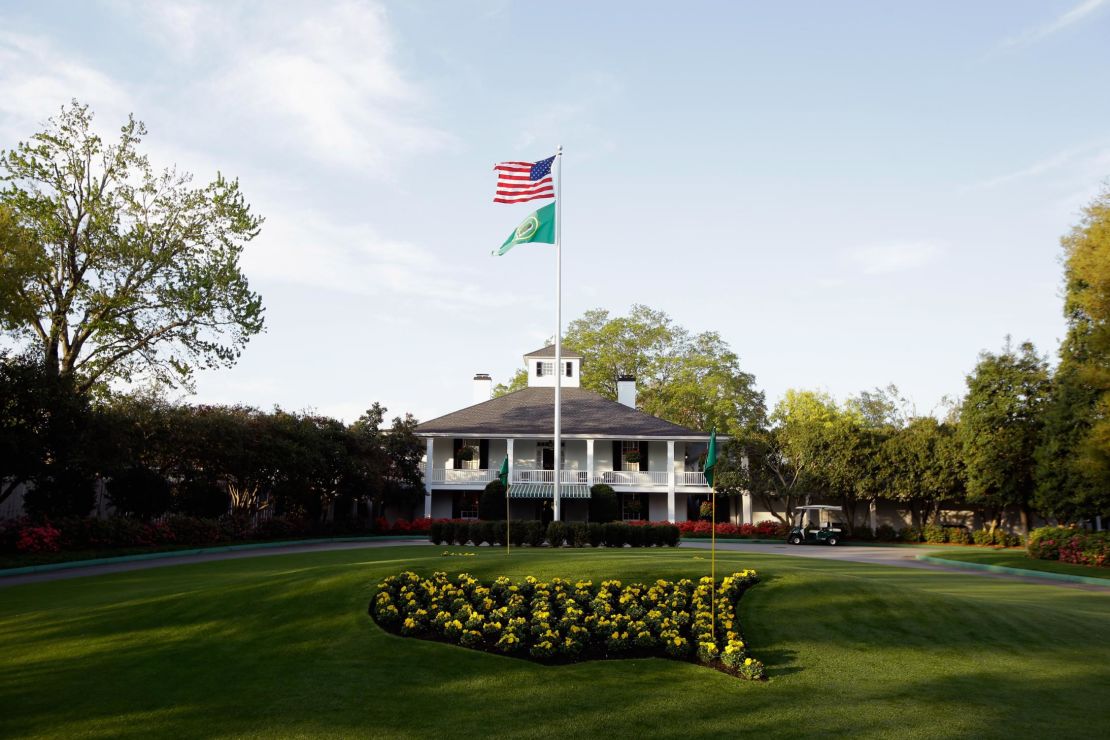
There are plenty of golf-minded strategies for making the most of attending the Masters. These are not those tips.
But golf fan or not, any tournament or practice round attendee – or “patron,” as they’re called – should soak up Augusta National’s unique atmosphere.
You’re likely to spot a handful of people on the course wearing the signature tailored green jackets, only available to club members and tournament winners. Club members number about 300 and the first women were admitted in 2012.
You can walk around to have your photo taken in front of the club house and peer down Magnolia Lane, the member entrance. The professional photos snapped in front of the club house can be downloaded for free later.
It may be the only photographic evidence of your experience. Cell phones are strictly prohibited and cameras are allowed only during practice rounds.
Patrons definitely should walk the course, purchase a cornucopia of snacks – pimento cheese, egg salad and Georgia peach ice cream sandwiches among the classics, plus a $4 or $5 beer – and sit in the stands set up on Amen Corner at the 11th, 12th and 13th holes. Here, golf’s most gripping moments are set against a saturated grass-and-azalea dreamscape complete with a fairytale stone footbridge.
The details
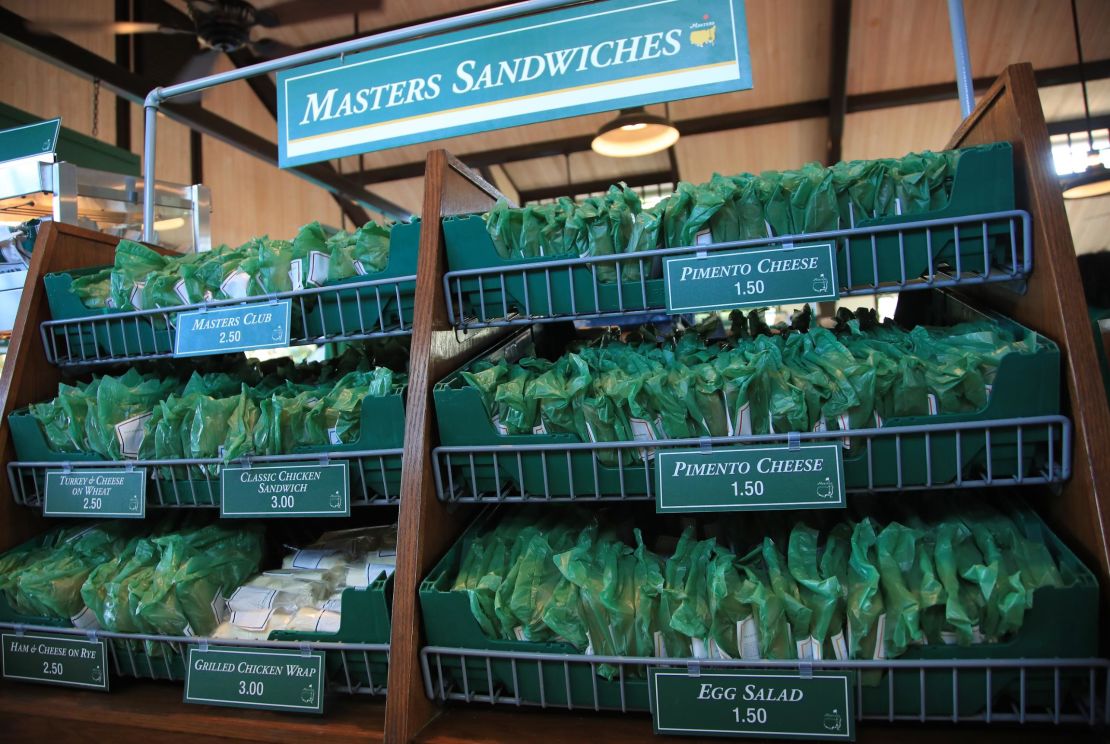
The golf shops operate with mechanical efficiency and even the souvenir-averse are bound to drop some cash on Masters-branded paraphernalia from stylish, high-end golf gear and an array of $20 caps, to glassware, throw blankets, beach towels, luggage tags and so on.
This is an organization that spares no expense. Concessions and restrooms are all housed in permanent structures.
A new press building, in its third season and presumably in full swing for only a couple of weeks a year, features an interview room with 148 seats for the media in a setup with United Nations-level gravitas.
Also housed in the press building, which is not open to the public, is the full-service Bartlett Lounge restaurant, a credential check-in area that evokes a five-star hotel lobby and state-of-the-art workspace with a practice-range view.
Masters tickets are coveted and notoriously difficult to get. Many of the tournament “series badges” are held by members and local families. The remainder of daily tournament tickets as well as practice round tickets are available for purchase through a lottery that must be applied for online months in advance.
The only detail that Augusta National has not entirely ironed out is the weather. Morning rain during a Tuesday practice round created some muddy conditions and wet, trampled grass with the aroma of a fiercely blended Mean Green smoothie.
Yet golf course staff and volunteers were unfazed by the inclement weather, pleasantly wishing everyone a great day and an enjoyable experience.
Beyond golf
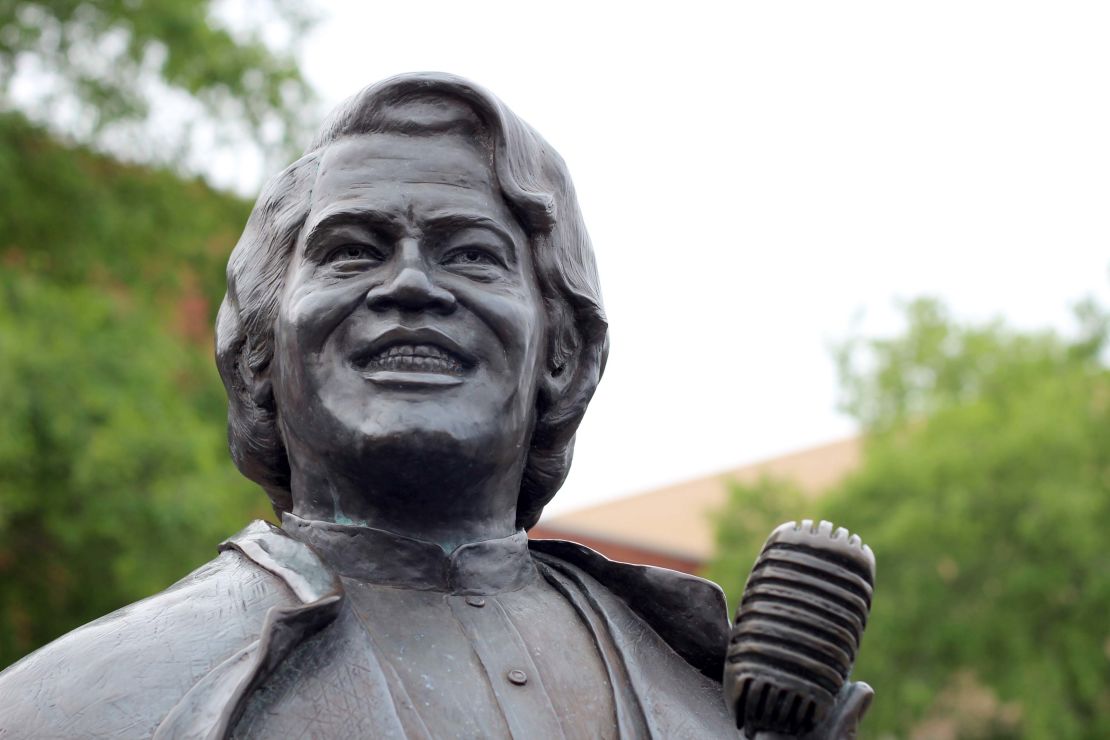
The Masters is definitely a premier Augusta experience, but golf is not the city’s only headliner.
James Brown, The Godfather of Soul, grew up in Augusta.
A statue of the performer sits on Broad Street downtown, and the nearby Augusta Museum of History is home to an exhibit featuring some of Brown’s personal effects, including clothing he wore onstage, family photos, concert footage and audio recordings by artists who were influenced by the revered, sometimes controversial, musician.
There’s also a weekly tour highlighting some of the spots significant to Brown’s life.
In his later years, locals say Brown played pool at divey downtown Soul Bar, where, if you’re not careful, your PBR could slide right off the illuminated bar’s smooth curve.
There’s plenty to do outside during daylight hours, especially during the showstopping Southern spring when redbud, dogwood and azalea blossoms stand out against fresh green growth.
The Riverwalk meanders along the Savannah River in Augusta. On the other riverbank, in North Augusta, South Carolina, a brand new minor league ballpark, SRP Park, will host its opening day on April 15. The Augusta GreenJackets have recently started their inaugural season.
Augusta is also home to a canal built in 1845 that tells the story of the city’s industrial past. The canal was conceived as a means of controlling the processing of cotton from field to factory. Textile milling has died out, but the canal is still a source of drinking water, power and recreation – both on the water and along the towpath.
The Augusta Canal Discovery Center at Enterprise Mill has exhibits about the canal’s role in the city and is the launching point for boat tours. The spring and fall tour calendars include evening music cruises.
Refreshments
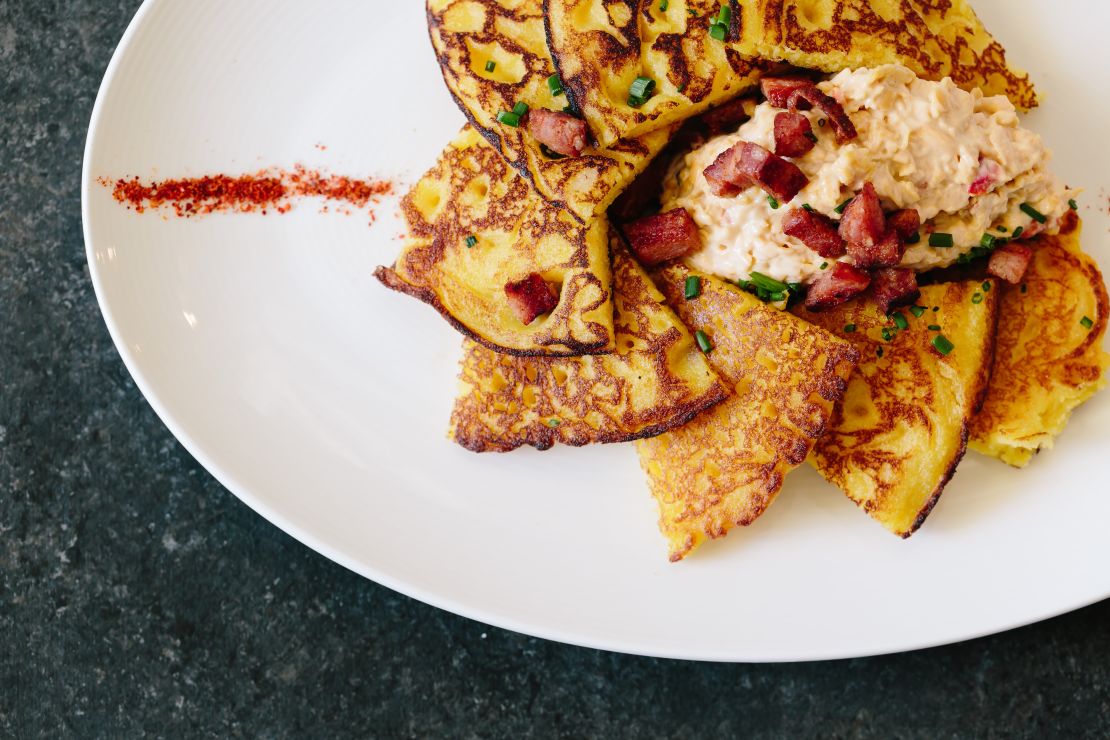
The area around downtown’s Broad Street is slowly revitalizing, with increased momentum in the last few years.
New shops and restaurants have opened amid strings of shuttered storefronts and a handful of businesses seemingly preserved in a time capsule.
The city’s convention and visitors bureau has new Augusta & Co. offices in a renovated Broad Street building as well as a selection of tourist exhibits and local crafts and goods for sale.
On the same block, Füse Restaurant serves a wide selection of craft beer and cocktails as well as an array of small plates, street tacos and larger entrees for dinner, plus brunch on the weekends.
Around the block, The Hive is a popular watering hole with 78 rotating taps of craft beer (plus cider, mead and wine) and locally sourced gastropub fare.
Craft & Vine, also on Broad Street, serves innovative takes on Southern staples including deviled eggs and pork rinds, charcuterie and cheese boards, small plates and wood-fired pizza.
For a mouthwatering, no-frills burger, divey pool hall and bar Sports Center (594 Broad St.) is the spot to check out.
On Monday, a new craft distillery opened close to the Riverwalk, just in time for Masters week. 2nd City Distilling Co. (4 Eighth St.) will offer tours, plus flights and cocktails for purchase in its spacious tasting room.
Closer to Augusta National, Surrey Center is a social hub with local boutiques and a range of restaurants including high-end southern kitchen and oyster bar Abel Brown and more low-key Bodega Ultima – a Mediterranean-infused breakfast and lunch spot centered around an expansive bar and patio.
Lodging
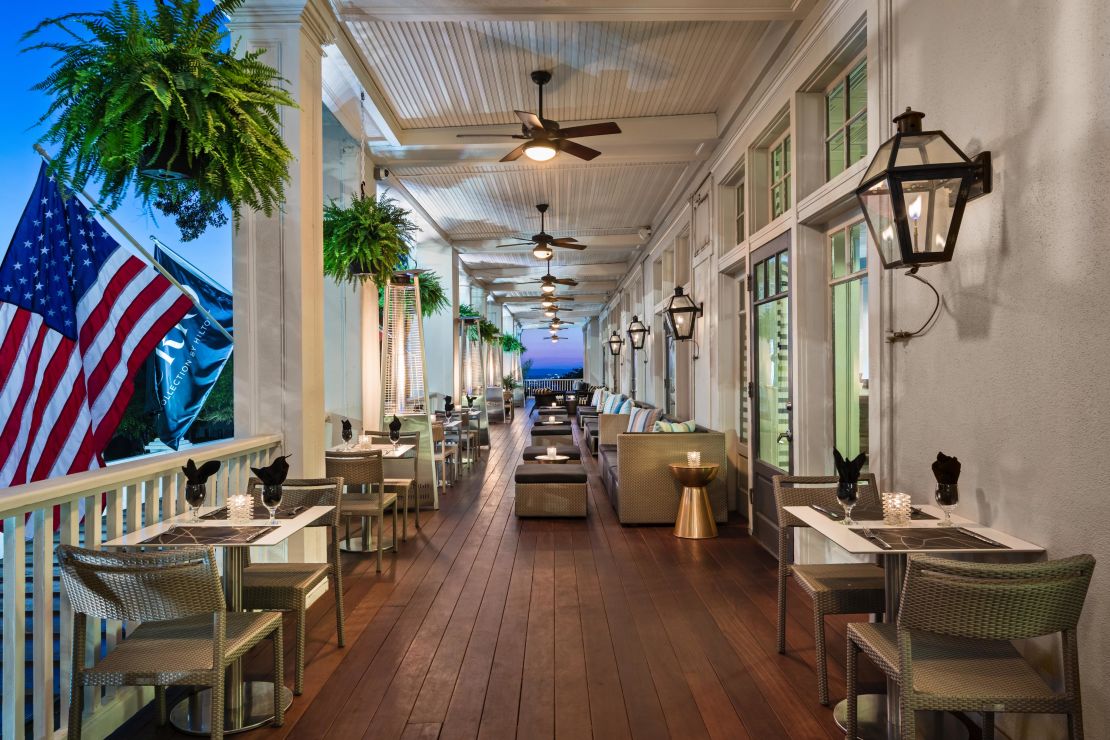
Masters lodging is tight. Hotels are booked well in advance, and many local homeowners make tidy sums renting out their houses for the tournament, which coincides with spring break.
Listings appear on the Masters Housing Bureau site and on sites including Airbnb and VRBO.
A brand new Hyatt House hotel opened on Broad Street in April.
The Partridge Inn is the city’s landmark hotel, with a verandah set up for dining and cocktails that stretches the length of the building.
There’s also a rooftop bar with sweeping views over the 1910 hotel’s elegant Summerville neighborhood, a hilltop historic district that’s home to some of Augusta’s most imposing old homes.
The original version of this story misidentified the location of North Augusta. It is in South Carolina.











